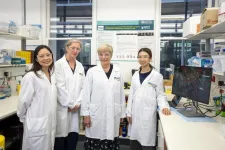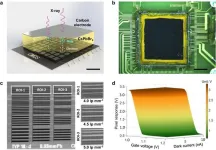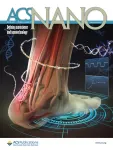(Press-News.org) Technology use is at an all-time high and understanding how this impacts daily life is crucial. When it comes to parent-child interactions, scientists have coined the term ‘technoference,’ meaning technology interference. It occurs when parent-child interaction and communication are disrupted by the use of digital devices.
But is distraction caused by digital devices more detrimental to parent-child interaction than when parental distraction comes from different sources? Researchers in Switzerland have investigated.
“In this study, we show that when parents are distracted, the quality and quantity of parent-child interaction is impaired compared to when parents are not being distracted,” said Prof Nevena Dimitrova, a researcher at the University of Applied Sciences and Arts Western Switzerland and principal investigator of the study published in Frontiers in Child and Adolescent Psychiatry. “This was regardless of if that distraction came from a digital or a non-digital activity.”
Screening distraction
Although the negative impact of parents being distracted by their phones while around their children has been established, less is known about whether these negative effects come from the fact that the parent uses a screen or from the fact that the parent is distracted in general.
To fill this gap, the team around Dimitrova tasked 50 parent-child pairs, in which children were 22 months old on average, to play together for 10 minutes. Participant pairs were divided in three groups. In the first group, there was no disruption. In the second group, after five minutes of play, the parent was given a questionnaire to fill out on paper, whereas in the third group, also after five minutes, the parent was instructed to fill out the same questionnaire using a tablet. Parents that filled out the questionnaire were instructed to continue interacting with their children.
The researchers found that parents who filled out the questionnaire were less sensitive to children’s communication signals, and that children showed lower levels of social involvement towards their parents.
Technoference, however, did not affect parent-child interactions more negatively than non-digital distractions. Instead, all distraction, regardless of whether it was caused by screens or pen and paper, had negative effects on parents, children, and pairs. “We interpret this finding—that was equally surprising for us—as the possibility that screens are so ubiquitous nowadays that young children might be becoming used to the reality of seeing their parents use screens,” said Dimitrova.
Regardless of their findings, the researchers stressed that parent-child interaction is at its best when parents are not distracted at all. This might be especially important for parents who find it difficult to bond with their children.
Curbing a ‘moral panic’
In the media, mostly alarmistic messages about the risks of screen use are discussed, said the researchers. However, research does not support the thesis that screen use by or in the presence of children is exclusively bad. For example, positive effects of screens on child psychological development have been shown in previous research.
“This study shows how important it is to rely on scientific evidence rather that public opinion about screen use. We see that it’s not screens per se that are detrimental to the quality of parent-child interaction,” concluded Dimitrova. “Instead, it seems to be the fact that the parent is not fully engaged in the interaction that negatively impacts parent-child communication.”
The researchers, however, also pointed out that it is difficult to make definitive statements about parental screen use based on one study alone. This is partly because everyday parent-child interaction differs from the experimental set-up. For example, the ways in which parents use screen while around their children cannot always be replicated fully. Studies in naturalistic context are needed and might lead to different results, the scientists noted.
END
Screen time not the main factor making parent-child interactions worse, study finds
Researchers investigated if ‘technoference’ has worse effects on parent-child interactions than non-digital distractions and found that distraction itself – not its source – may be to blame
2024-05-21
ELSE PRESS RELEASES FROM THIS DATE:
Improving the effectiveness of earthquake early warning systems
2024-05-21
Mobile phones have become invaluable for receiving emergency alerts such as weather warnings, evacuation notices and notifications about missing persons. In Japan, where earthquakes are frequent, they are vital for delivering earthquake warnings and advising people to take protective actions beforehand. To deal with such situations promptly, the Earthquake Early Warning (EEW) system sends out notifications to areas expected to experience strong tremors by detecting primary seismic waves (P-waves) that arrive before the secondary waves (S-waves). However, the short time between receiving the notification and the arrival of S-waves ...
Addressing homelessness in older people
2024-05-21
Homelessness doesn’t only happen to young people but also affects older adults in growing numbers, write authors in an analysis in CMAJ (Canadian Medical Association Journal) that describes this emerging crisishttps://www.cmaj.ca/lookup/doi/10.1503/cmaj.231493.
People experiencing homelessness are considered older adults at age 50, as visible aging is often evident at younger ages in individuals experiencing homelessness compared with individuals who have secure housing. Individuals experiencing homelessness often develop chronic ...
One in 5 adults in Canada without access to primary care
2024-05-21
More than 1 in 5 adults in Canada did not have access to primary care, with large regional gaps in access, found new research in CMAJ (Canadian Medical Association Journal) https://www.cmaj.ca/lookup/doi/10.1503/cmaj.231372.
“Translated to the population of Canada, our survey estimates that more than 6.5 million adults across the country don’t have access to a family doctor or nurse practitioner they can see regularly,” says Dr. Tara Kiran, a family physician and researcher at the MAP Centre for Urban Health Solutions at St. Michael’s Hospital, Unity Health Toronto and the University ...
Studies on risks of weight-loss drugs and more presented at Digestive Disease Week
2024-05-21
Washington (May 14, 2024) — Studies examining the risks of GLP-1 weight-loss drugs, distinguishing alpha-gal syndrome from other GI disorders, and comparing medications to slow the progression of liver disease in patients with alcohol-use disorder will be presented this week at Digestive Disease Week (DDW) 2024. Abstracts are available to registered media. Embargos lift at 12:01 a.m. EDT on the day they are presented.
Here are summaries of the new research:
Re-examining the risks of gastrointestinal adverse events associated with glucagon-like peptide-1 receptor agonists for weight loss with more stringent criteria on a comprehensive ...
Pancreatic cancer research receives $8m philanthropic funding boost
2024-05-21
An exceptional $8 million, 10-year philanthropic investment will spearhead new treatments for pancreatic cancer and create a new dedicated research centre at WEHI.
The centre, to be established thanks to an investment by Australian business leader and WEHI President Jane Hemstritch AO, aims to help close the significant survival gap between pancreatic cancer and other cancers.
The Hemstritch Centre of Excellence for Pancreatic Cancer Research will provide a leading team of scientists and clinicians with long-term funding to ask big research questions. They aim to make major ...
'Hunting for treasures' with AI: Astronomers detect rare neutral atomic-carbon absorbers with deep neural network
2024-05-21
Recently, an international team led by Prof. GE Jian from the Shanghai Astronomical Observatory of the Chinese Academy of Sciences conducted a search for rare weak signals in quasar spectral data released by the Sloan Digital Sky Survey III (SDSS-III) program using deep learning neural networks. By introducing a new method to explore galaxy formation and evolution, the team showcased the potential of artificial intelligence (AI) in identifying rare weak signals in astronomical big data. This study was published ...
Researchers develop perovskite X-ray detector for medical imaging
2024-05-21
Technology (SIAT) of the Chinese Academy of Sciences, in collaboration with researchers at Central China Normal University, have developed a high-performance perovskite X-ray complementary metal-oxide-semiconductor (CMOS) detector for medical imaging.
The study was published in Nature Communications on Feb. 21.
X-ray imaging is vital for the diagnosis and treatment of cardiovascular and cancer diseases. Direct-conversion X-ray detectors made of semiconductor materials exhibit superior spatial and temporal resolution at lower radiation doses compared to indirect-conversion detectors made of scintillator materials. However, the currently available semiconductor ...
Rice chemist Gustavo Scuseria wins 2024 Schrödinger Medal
2024-05-21
By Jade Boyd
Special to Rice News
Pioneering Rice University chemist Gustavo Scuseria has won the 2024 Schrödinger Medal from the World Association of Theoretical and Computational Chemists.
Awarded annually to a single recipient, the medal recognizes an outstanding body of work in theoretical and computational chemistry. Scuseria has pioneered quantum computational methods that are widely used to study the complex quantum states and electronic properties of a wide range of molecules and materials. In awarding the medal, ...
Monitoring the recovery process accurately with a medical needle and thread!
2024-05-21
□ DGIST (President Kunwoo Lee) announced on the 16th (Tue) that a research team led by Professor Jaehong Lee of the Department of Robotics and Mechanical Electronics has developed a new human implantable, wireless, health monitoring electronic suture system through joint research with a team from Yonsei University and Korea University. The developed wireless electronic suture can be easily applied in the medical field and is expected to be used in various orthopedic fields, such as patient-customized rehabilitation.
□ ...
One essential step for a germ cell, one giant leap for the future of reproductive medicine
2024-05-21
KYOTO, Japan – May 20, 2024
Infertility affects approximately 1 in 6 people in their lifetime worldwide according to the World Health Organization (WHO). Infertility —as defined by the American Society for Reproductive Medicine (ASRM)— is a disease, condition, or status characterized by “the inability to achieve a successful pregnancy based on a patient’s medical, sexual, and reproductive history, age, physical findings, diagnostic testing, or any combination of those factors” or requiring medical intervention such as the use of mature donor gametes “to achieve a successful pregnancy ...
LAST 30 PRESS RELEASES:
Ketamine high NOT related to treatment success for people with alcohol problems, study finds
1 in 6 Medicare beneficiaries depend on telehealth for key medical care
Maps can encourage home radon testing in the right settings
Exploring the link between hearing loss and cognitive decline
Machine learning tool can predict serious transplant complications months earlier
Prevalence of over-the-counter and prescription medication use in the US
US child mental health care need, unmet needs, and difficulty accessing services
Incidental rotator cuff abnormalities on magnetic resonance imaging
Sensing local fibers in pancreatic tumors, cancer cells ‘choose’ to either grow or tolerate treatment
Barriers to mental health care leave many children behind, new data cautions
Cancer and inflammation: immunologic interplay, translational advances, and clinical strategies
Bioactive polyphenolic compounds and in vitro anti-degenerative property-based pharmacological propensities of some promising germplasms of Amaranthus hypochondriacus L.
AI-powered companionship: PolyU interfaculty scholar harnesses music and empathetic speech in robots to combat loneliness
Antarctica sits above Earth’s strongest “gravity hole.” Now we know how it got that way
Haircare products made with botanicals protects strands, adds shine
Enhanced pulmonary nodule detection and classification using artificial intelligence on LIDC-IDRI data
Using NBA, study finds that pay differences among top performers can erode cooperation
Korea University, Stanford University, and IESGA launch Water Sustainability Index to combat ESG greenwashing
Molecular glue discovery: large scale instead of lucky strike
Insulin resistance predictor highlights cancer connection
Explaining next-generation solar cells
Slippery ions create a smoother path to blue energy
Magnetic resonance imaging opens the door to better treatments for underdiagnosed atypical Parkinsonisms
National poll finds gaps in community preparedness for teen cardiac emergencies
One strategy to block both drug-resistant bacteria and influenza: new broad-spectrum infection prevention approach validated
Survey: 3 in 4 skip physical therapy homework, stunting progress
College students who spend hours on social media are more likely to be lonely – national US study
Evidence behind intermittent fasting for weight loss fails to match hype
How AI tools like DeepSeek are transforming emotional and mental health care of Chinese youth
Study finds link between sugary drinks and anxiety in young people
[Press-News.org] Screen time not the main factor making parent-child interactions worse, study findsResearchers investigated if ‘technoference’ has worse effects on parent-child interactions than non-digital distractions and found that distraction itself – not its source – may be to blame






